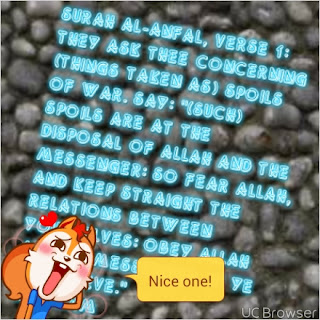WHO ARE THE ULUL AZIM MIARRUL
Select Language▼
What Are The Views of Major Prophets (PBUT) in Islam?
PDF Version
Who Are The Major Prophets (PBUT) of Islam?
All Prophets came with the same essentials of belief: belief in God’s Existence and Unity, the world’s final destruction, Resurrection and Judgment and all Prophets without distinction, all Divine Scriptures, angels, and Divine Destiny and Decree (including human free will). They called people to worship the One God, preached and promoted moral virtue, and condemned vice. Differences in particular rules and injunctions were connected with the economic and political relationships existing at that time, and because all Prophets prior to Prophet Muhammad were sent to their own people and for their own time. Prophet Muhammad, however, was sent to humanity regardless of time or place. Thus to be a Muslim means believing in all previous Prophets and the original previous Scriptures.
A Prophet, one purified of sin and vice and having a deep relation with God, guides people to truth and sets a perfect example for them to follow. Such people have the following essential characteristics: absolute and complete truthfulness, trustworthiness, and communication of the Divine Message; the highest intellectual capacity, wisdom, and profound insight; sinlessness; and no mental or physical defects. Just as the sun attracts the planets by the invisible force of gravitation, Prophets attract people by the force of their profound relation with God, certain miracles, and the sheer nobility of their person, purpose, and character.
Over all 124,000 Prophets were send to mankind to guide them, that should speak for our misleading patterns of life and how we go astray every minute. Imagine 124,000 people come to you and tell you what you believe is wrong and you know that you are wrong, would you not for the sake of humanity accept the truth?
If we take the recount of civilizations that existed from after Adam (PBUH) to present day, we might add up approximately 124,000 different tribes. There are names that we can come to common terms in as we explore the major aspects of Prophets (PBUT) being sent to mankind for guidance. The idea of Kabeel and Abeel is referred to as Kane and Able in the Biblical understanding of history. I think when we look into history and really dig out the resources and scriptures (ORIGINAL SCRIPTURES) we can all relate to every specific subject that we point at and unfortunately that is not the case in the present day society.
If you still refuse it, then accept the burning of the Hell Fire. It is your choice in rejecting what has been sent down from ALLAH (SWT) (swt). However, if you rejected it as a man, then take the punishment as a man. The five major prophets according to the Quran are:
Noah
Abraham
Moses
Jesus
Muhammad
May Peace and Blessings of ALLAH (SWT) (swt) Be Upon Them All. Ameen
The Islamic definition of a prophet is someone who has been chosen and favoured by ALLAH (SWT) (swt) to convey his message to the people on earth and to bring them to believe in and worship him alone. In Islam there are two types of prophets, one is the Nabi (Messenger) who are regular prophets sent to do as mentioned. The second type is the Rasool (Prophet) who are higher in ranks as they were sent a revelation in the form of a holy book, they are obviously higher in status. That does not mean that there is inequality over selection of people chosen for a task. Prophets (PBUHT) who have revelations will have a higher status not only in the eye of humanity but to ALLAH (swt) as they are given a harder task to carry.
The harshest of all the tasks given to any Prophet (PBUH) is our Beloved Prophet Mohammed (PBUH) for the revelation of the Quran came to him and the Quran being the last of all revelations means a task more difficult to carry out than any that has ever happened in the "History of Mankind". In combinations of what has been revealed to Mankind through Prophets (PBUT) in the past up unti


Comments
Post a Comment